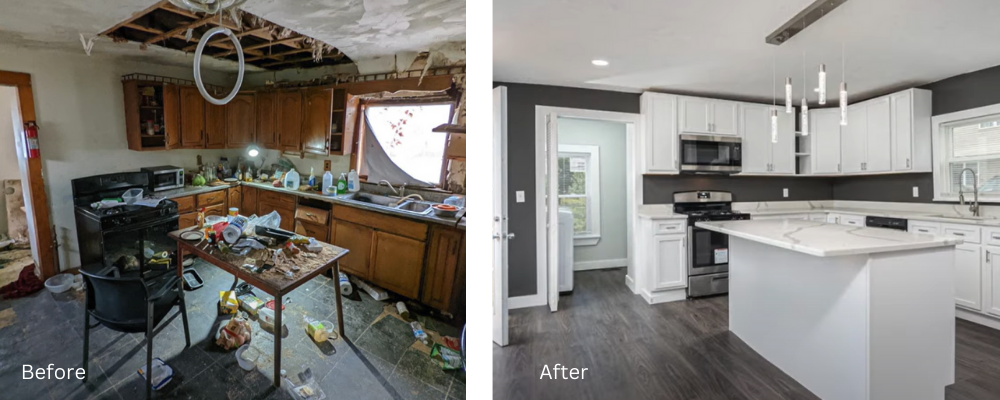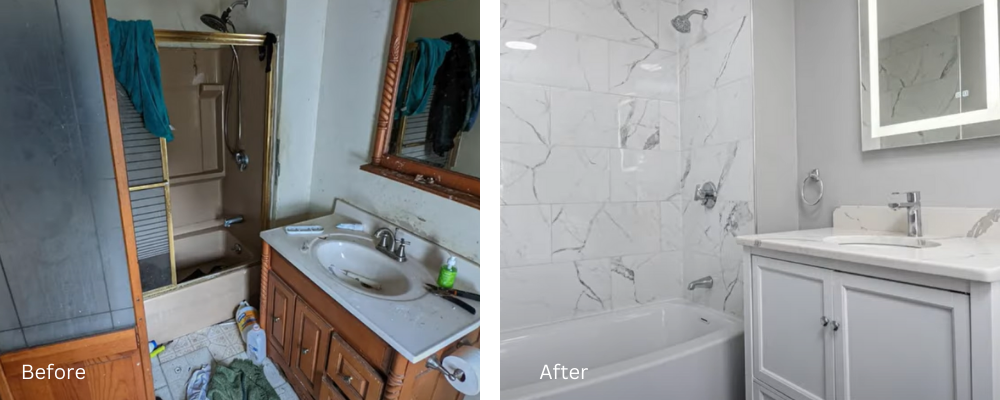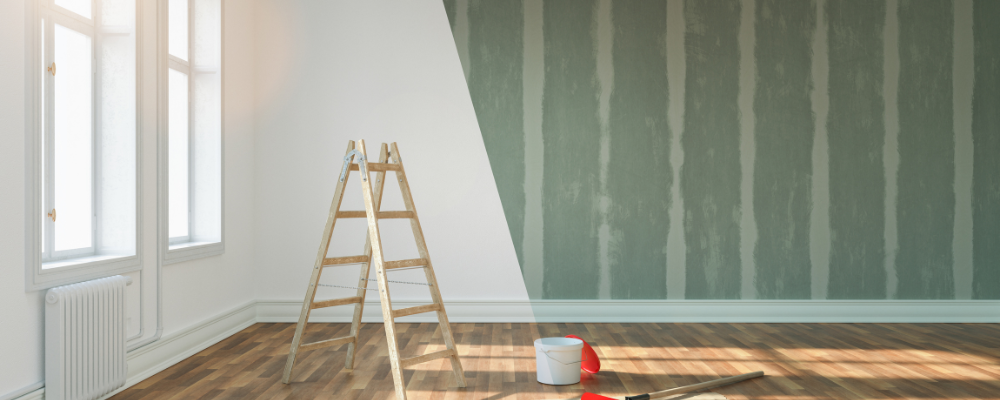Darius Welch made over $100,000 on his first house flip at 23 years of age. In this video he outlines his step-by-step process of flipping houses, and tips for successfully making a solid profit.
Darius secured his first flip in Worcester, Massachusetts, a two bedroom, one bathroom property for $80,000. The property needed a full house renovation, which took 6 months and cost $85,000. After completing the renovations, Darius listed the property for $290,000 but successfully sold it for $305,000, resulting in a profit of over $100,000.
Darius emphasizes that house flipping, while lucrative, is a risky business that requires a reliable team, careful planning, and adherence to budgets and timelines to avoid significant financial losses.
Darius outlines the following key steps for successfully flipping a house:
Step 1: Find The Right Property
Darius highlights the importance of networking, by letting friends, family, and local contacts know that you’re looking for a property to flip. He found his first property to flip through a contractor friend. Finding the right property is the cornerstone of making a profit from flipping houses, so this is a vital step. Darius recommends looking for distressed properties that need upgrading, where there’s potential for a large increase in property value after renovations.
Step 2: Evaluate The Property
Darius advises house flippers to identify 3 similar properties within a 1 mile radius that have sold in the past year. You can use their sale prices to work out the potential ARV (After-Repair Value) of the property you’re considering. Getting bids from local contractors is a quick and easy way to estimate the cost of the renovation.
To easily calculate the ARV on a property, New Silver offers a FREE ARV calculator.
Step 3: Calculate The Offer Price
Darius recommends using the 70% or 75% rule to calculate the amount that you should offer the property. This rule ensures that you leave enough margin for profit after covering renovation costs and potential selling fees. Based on this number, you can make an informed offer to the seller. The formula for this is:
(ARV x 0.75) – Renovation Costs = Maximum Allowable Offer
Step 4: Secure Financing
Darius suggest using a private money lender instead of a traditional lender. This allows for more flexibility on the loan, and a down payment may not be necessary and these lenders may be more lenient with credit checks.
Step 5: Close The Deal And Renovate
The next step is to secure the property by putting it under contract with an earnest money deposit. From there, Darius suggests partnering with a reliable general contractor for the renovation process. The key elements to this are ensuring that the process stays on track with the timeline, and on budget, because mismanagement in any area can lead to financial losses.
Some of the renovations that Darius did which made the biggest impact on the property value were the bedroom, bathroom and kitchen.



Step 6: List The Property
If possible, Darius suggests listing the property yourself to save on agent fees. Darius sold his property for more than the asking price, leading to a significant profit. As such, he highlights the importance of pricing the property competitively based on your initial ARV calculation.
5 Additional House Flipping Tips For Beginners

1. Start with a business plan
Before starting your first flip, creating a business plan is a vital building block for a successful project. It should include your budget, timelines, financing strategy, target market, and exit strategy.
2. Understand the local market
Understanding the local market conditions is one of the most important tools to use to earn a higher profit in your house flipping deals. Factors like property values, demand for housing, and neighborhood amenities are crucial to consider to get to grips with the market and make more informed investment decisions.
3. Focus on curb appeal
First impressions count, and when it comes to selling a home quickly once you’ve renovated it, this saying rings true. Make sure to focus on the curb appeal of the home in your upgrades, and this will pay off when it comes time to sell.
4. Expect the unexpected
Unexpected costs often arise during renovations, so it’s vital to budget for these. The best way to deal with unexpected costs is to have a contingency fund (typically 10-20% of your renovation budget) to cover these surprises.
5. Quality above all
When it comes workmanship and materials, focusing on quality and not cutting corners. While it may be tempting to cut costs, using cheap materials or hiring inexperienced contractors can lead to issues down the line.
About Darius Welch
Darius is a licensed realtor and real estate investor, known for his success in flipping houses. He gained recognition after making over $100,000 on his first house flip at the age of 23. Welch is now dedicated to teaching others how to achieve similar success through online courses and resources. He offers practical advice and step-by-step guidance on flipping houses, aimed particularly at beginners who want to enter the real estate market.




